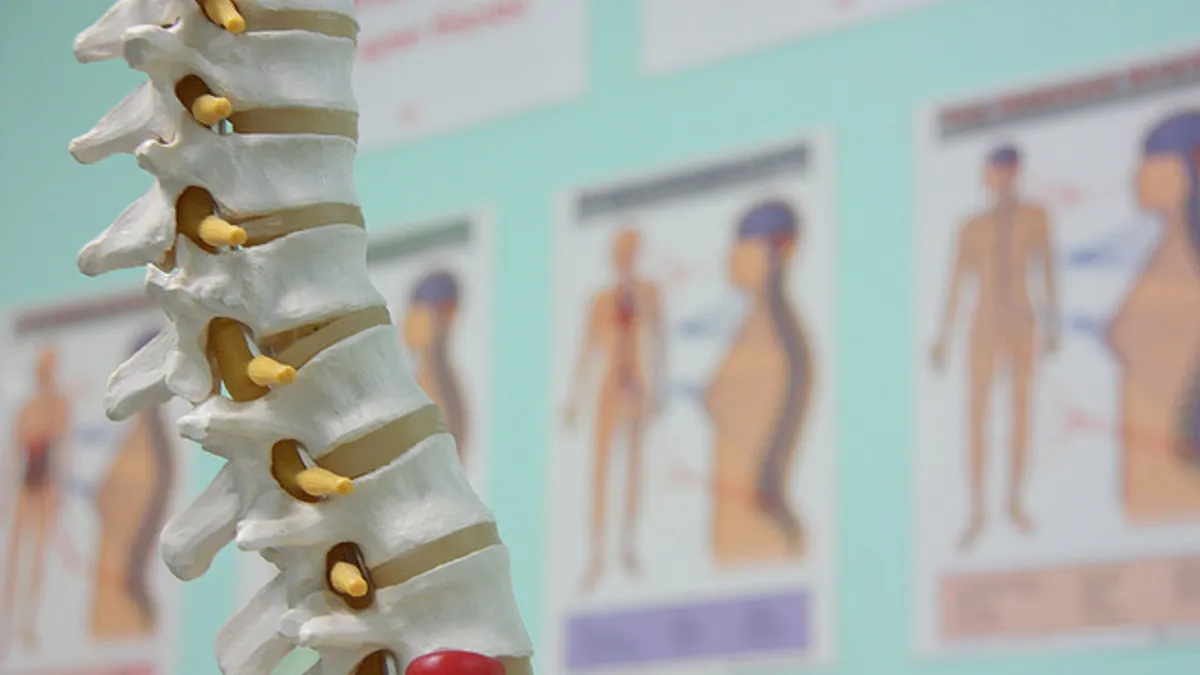UPDATE: Dec. 13, 2021: NuVasive notified healthcare providers outside the U.S. that CE certification for its MAGEC scoliosis device system has been reinstated and the instructions for use for the system has been updated.
The update comes roughly eight months after NuVasive put a global ship hold on the devices and the suspension of the system's CE mark due to safety concerns, including reports of device malfunctions and biocompatibility risks. According to NuVasive's Dec. 1 update, the CE mark was reinstated as of Nov. 19.
The FDA said in a Friday safety communication that NuVasive has also lifted a ship hold for MAGEC systems outside of the U.S. The agency reiterated that patients should speak with a doctor regarding safety risks for the device, but the agency "believes the benefits of a MAGEC device outweigh the risks."
The MAGEC system is used to treat early-onset scoliosis and includes implanting rods to support the spine.
One key update in the new instructions for use is that devices should now be removed after no more than two years following implantation, compared to the previous instructions of removing the device after no more than six years. The change is accompanied by a caution that device use after two years could result in health risks for patients; a caution message was not previously included.
For patients that are currently implanted with the system and are past two years, the company said that healthcare providers should evaluate and consult with their patients and assessments should be conducted at a minimum of every six months.
NuVasive also included specific instructions for when the device should be used, such as specific parameters for progressive spinal deformities, whereas the prior instructions were more general.
The instructions for use are now aligned worldwide as the instructions varied by region, according to NuVasive.
While the FDA did not give a specific number for reported injuries or deaths associated with the system, the agency said Friday that it "began receiving reports in early 2021 describing local tissue reactions potentially related to endcap separation events with the MAGEC devices."
The FDA is currently working with NuVasive to evaluate biocompatibility risks, collect new data and determine if there is a clinically meaningful impact on patients.
Dive Brief:
- NuVasive is permanently stopping U.S. sales of its MAGEC 1.5 and 2 scoliosis medical devices amid biocompatibility concerns. The move comes as the FDA warned in a safety communication on Thursday of potential mechanical failures and tissue incompatibility issues linked to components of the devices.
- Shipments of MAGEC devices have been on hold since April, when the temporary suspension of the CE mark over gaps in the data led NuVasive to voluntarily stop global sales. The company has now responded by removing products from its MAGEC line.
- While NuVasive is stopping U.S. sales of older MAGEC devices, it is lifting the hold on U.S. shipments of the modified "X" version of the product line and resuming sales. The company designed the device to mitigate endcap separation and related biocompatibility concerns. FDA in July 2020 cleared a modified version of the MAGEC Model X rod for that purpose.
Dive Insight:
The MAGEC line of devices, which brace the spine to reduce the progression of scoliosis, has caused NuVasive a series of problems since it acquired the franchise in its $380 million takeover of Ellipse Technologies in 2016. An urgent field safety notice published in 2019 revealed a locking pin on older devices could fracture after implantation, leading to the suspension of U.K. sales last year.
The situation has escalated this year, with the CE mark suspension precipitating a voluntary hold on global shipments. FDA, having raised potential concerns with NuVasive's Precice devices last week, issued a notice about MAGEC mechanical failures and biocompatibility issues on Thursday.
FDA began receiving reports of "local tissue reactions potentially related to endcap separation events with the MAGEC devices" early this year. The notice does not state which MAGEC devices were linked to the local tissue reactions and covers a range of products in the line. FDA is advising against the removal of implanted devices and asking physicians to follow up reports of unexpected back pain.
NuVasive received FDA clearance for a modified version of the MAGEC X rod one year ago. The rod is designed to mitigate the endcap separation that can expose a patient's tissue to internal components that have not been completely tested for biocompatibility.
FDA's recommendations apply to all MAGEC devices, including the modified X rod cleared last year, but the agency voiced support for the lifting of the hold on shipments. As FDA sees it, restarting sales of the modified MAGEC X device "is in the best interest of patients" because the benefits outweigh the risks.
Going forward, the modified MAGEC X device will be the only product in the line available in the U.S. NuVasive will continue to support implanted MAGEC 1.5 and 2 rods and existing field inventory, but shipments of the older devices will stop. The company disclosed the portfolio changes alongside news of new instructions for use intended to "further clarify potential adverse events."











